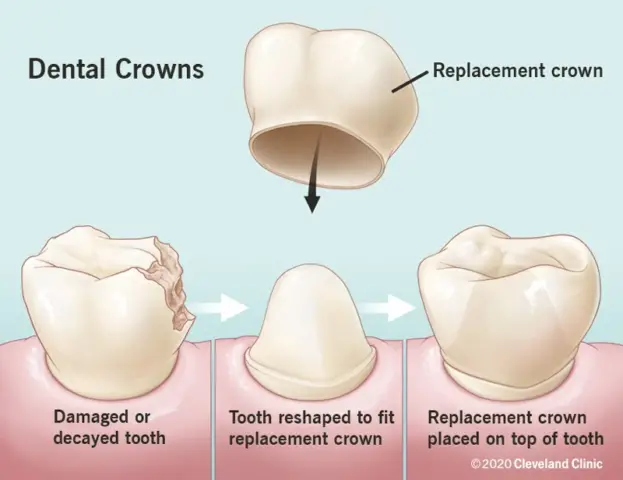Despite the fact that dental crowns are one of the most common treatments performed in the realm of aesthetic dentistry, most dentists often encounter questions like, “Do I really need to get dental crowns?”
We truly understand the apprehension considering that the treatment indeed comes with a cost, even if you have an insurance policy.
Before we delve deeper in the topic, let’s start off with the basics.

What are Dental Crowns?
A dental crown, also known as a dental cap is a cover that a dentist uses to cover a tooth. The amount of coverage depends on the condition of the tooth. They are meant to perform an array of functions; each equally important. To name a few, it serves as a solid support system for damaged teeth and prevents infections from developing. Speaking of this, a dental crown prevents bacteria and keeps it at bay. Therefore, it is always wise to get it done once an infection is removed.
Moreover, once placed, it immediately provides the support the damaged teeth needs for proper functionality. At the same time, it prevents any further damage from taking place.
Materials Used to Make Dental Crowns
There are several materials that can be used to formulate dental crowns. For example, resins, metal alloys, porcelain, or metal-infused porcelains may be used. It is of paramount importance that regardless of the material used, it must and should blend in with the natural color of the teeth for an authentic appearance.
In order to determine which material will be most suitable, a dentist will look for a number of factors in a patient. This includes:
- The function and the location of the tooth in question
- How much does the tooth show when the patient smiles
- The color of the teeth
- Gum tissue’s position
Now comes the answer to the million-dollar question as to why would you need a crown?
Well, you dentist will suggest you undergo the treatment if you:
- Have multiple or large cavities
- Had a root canal
- Missing or fractured tooth
- Weak enamel
- Have had multiple or failed dental fillings
- Need to cover up dental implants
How is a dental crown placement carried out?
Below are the following steps that are involved in dental crown placement:
- After a thorough consultation, the dentist starts by inspecting the condition of the tooth. The outer portion of the tooth is removed for the crown to fit. During this process, any decay found is also removed.
- Next, a dental impression is made to fabricate a crown
- Until a permanent crown is made, a temporary one is fitted. Take note that this tooth may show sensitivity to hot and cold. Hence, avoid hard or sticky foods.
- The technician uses the model to customize the crown
- When it is ready, the dentist places it and carries out any necessary adjustments. Subsequently, the dental crown is carefully cemented.
How to ensure a smooth recovery?
Following the restoration, it is natural for the tooth to feel sore in the first few days. Therefore, patients are strongly advised to not eat anything hard. Instead, they must eat softer food in addition to making sure that anything they consume is not both too hot or cold. The temperature of the food or drinks should be mild to avoid any mishap. In addition, it is also natural to experience swelling post the treatment. It is recommended to rinse with warm salt water as it soothes and reduces the swelling.
Typically, it takes a few days to recover a dental crown placement. It is common to encounter inflammation and sensitivity after the placement. Expect it to subside in a week or two and if it does not, get a follow-up consultation from your dentist.
Use over-the-counter pills should you experience any pain-related issues. If there still is trouble eating or discomfort once the recovery phase has passed, notify your dentist so that your crown can be checked in case it needs any re-adjustments.
How to care for the tooth after the procedure?
Having a crown does not mean that your teeth are foolproof of any damage. Just like your natural teeth, even a crown has the tendency to break. Or if not, the tooth underneath the crown can get cavities. To prevent that, it is crucial that a patient exercise a strict oral hygiene regime.
Make it a point to brush and floss twice a day. Moreover, don’t use alcohol-based mouthwash as it can damage your teeth and any dental procedure in the long-term. Lastly, make it a habit to regularly visit your dentist for follow-up checkups and professional cleaning.
SP

For those who have experienced shifts in consciousness and know that more peace, joy, and love awaits in a better living environment. A bold shared vision. A living community and hub for innovation. A sustainable ecosystem for living and working. A model for the new future.
